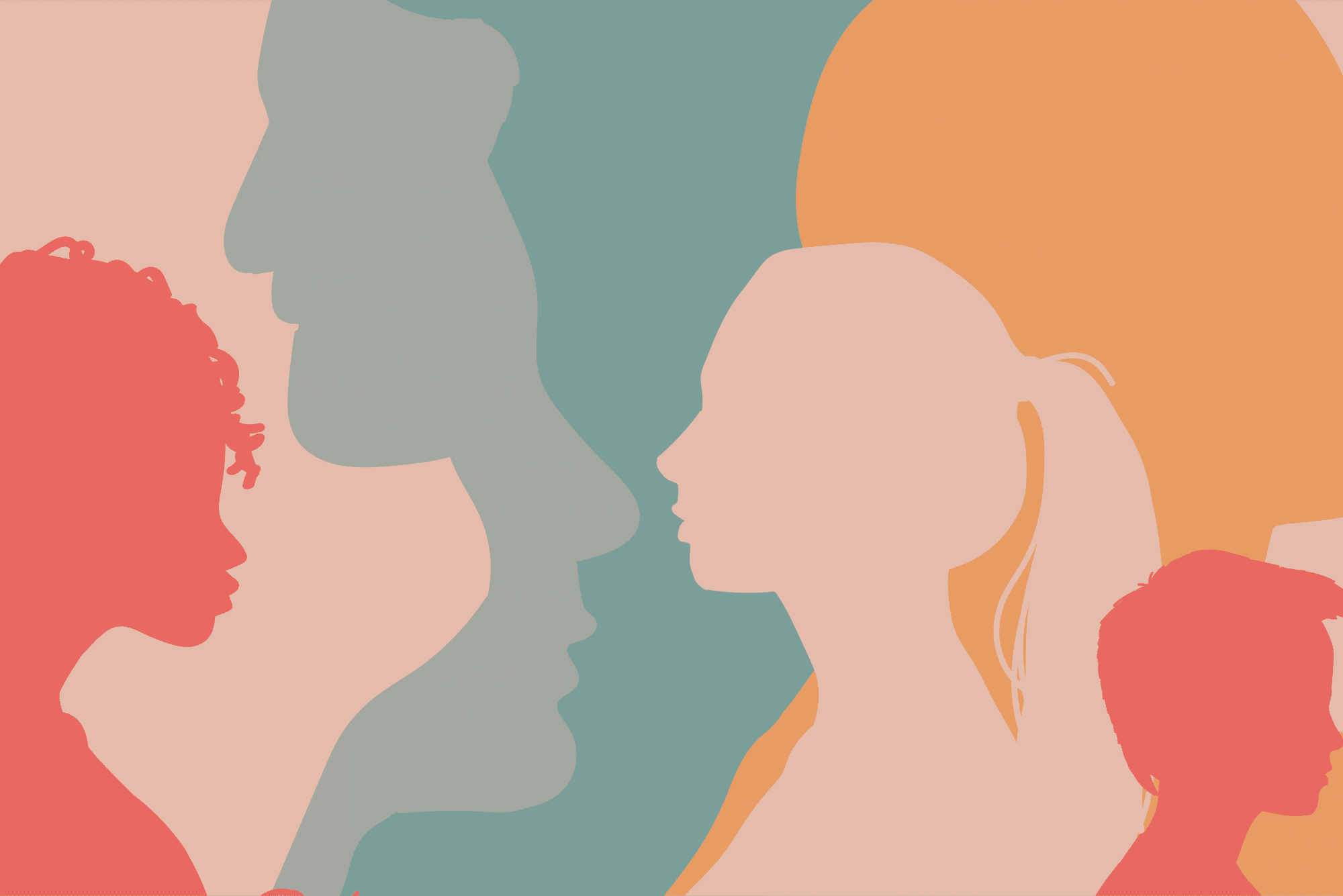At the beginning of the year, I interviewed Charlotte James and Undrea Wright, co-founders of The Ancestor Project, a Baltimore-based organization that prioritizes and uplifts BIPOC healing within the psychedelic space through education, ceremony, and support in reverence and respect for ancestral wisdom. From that conversation, I learned a lot, in particular, about space holding. James and Wright had introduced to me the concept of “baby elders” —people who seek to become guides, facilitators, and space holders of sacred plant medicine in spite of limited experience, lacking connection to the medicine through lineate, and rushing to do the work without reverence and respect to traditional rites of passage.
What has been true to me, which has often been reflected back post-ceremony, particularly during ayahuasca integration circles, is a deep desire from each participant for someone or something outside themselves to experience that same level of healing and insight they just received from their own journey work.
That desire is a reflection of why many of us sit in ceremony in the first place: martyrdom. We place our personal healing aside (in this case, the participants in the integration circle, freshly returned from a journey already focused on someone else’s healing), and continue to perpetuate the cycle of prioritizing the needs of others over our own. And while our intent may be to heal our communities while we heal ourselves, this desire may have counter effects: an increase of premature space holders and facilitators with limited experience working with plant medicines, overconsumption of these medicines to a point of extraction (returning time and again to ceremony), appropriation of other’s cultures and identities, and bypassing the integration process altogether, failing to address the years of trauma and pain, which, for many, serve as the precursor and guide that leads us to ceremony.
So, the question then becomes, how can we heal our communities, work in reverence to these sacred medicines without perpetuating the greater systems of harm against us, and continue to leave more than what we came with for the next seven generations to come? If this question is part of your own self-inquiry as you delve into plant medicine, here are six ways to divest from whiteness (and colonialism) in the psychedelic space as a start.
1. Be a Plant Ally: Don’t overconsume or over-extract.
Invited to three ayahuasca ceremonies this month? Considering the fact that it takes an extremely long time for ayahuasca vines to grow (we’re talking a minimum of five years here), realize the amount of time, natural resources, and energy that go into brewing that single cup. Consider that many indigenous peoples in the Amazon face scarcity of sitting with the medicine that came through the wisdom of their own ancestors, due to the over-extraction from the Western world. Instead of rushing to the next ceremony, focus on what some may consider to be the most important pillar of the journey work: integration — the space between ritual and routine that allows us to incorporate forest wisdom into our everyday life. Take this time to learn more about the medicines you work with: Understand harvesting practices and what it takes for it to get to you, learn from the indigenous stewards, and actively seek out ways you can pour *directly* back into their communities as they pour into ours, and create necessary space between ceremonies, giving others a chance to sit so we all can benefit from these plant teachers in sustainable ways.
2. Don’t try to tell Black, Brown and Indigenous people what we need for our healing and liberation. Take a step back and let us steward this movement.
What can be considered arguably worse than whiteness and white supremacy itself is its equally problematic cousin: the well-intended white ally who believes they are the savior and solution to undoing hundreds of years of colonialism (created by their ancestors nonetheless). They are the ones who will tell you that they are using their privilege to redistribute power back to the people, while also wielding that same power against us when we note that their desire to uplift and amplify actually takes up unnecessary space and resources from the BIPOC stewards already doing the work. Here’s the tea: We don’t need another white-led startup, org, or people’s initiative that is created by white allies. We are not here to carry out your mission built upon white saviorism so you can pat yourself on the back at night. Rather than invest in your own movement, honor and acknowledge the Black and Brown organizers who are already stewarding this work. Use your privilege to resource the under-resourced rather than trying to create offshoots of movement work already being done and getting us to co-sign onto your projects. This movement will be Black, Brown, and Indigenous-led, not guided by white saviorists.
How to Grow Shrooms Bundle
Take Both of Our Courses and Save $90!
Read: How Anti-Racism is a Form of Psychedelic Harm Reduction
3. Don’t just work with us, learn from us.
Whether it’s working with sacred medicine without learning the cultural significance and history of these plant allies, or failing to deeply listen to the concerns of BIPOC stewards within the psychedelic space, if the extent of your solidarity is moving out the way for us to build, you’re still not doing enough. Acknowledging that space needs to be created doesn’t relinquish one of continuing to do the work. Continue to learn from our ancestors, learn from the educators who exist today and the ones who came before us, learn from the activists, and learn from the community. Creating space isn’t enough if you’re not able to understand the language we speak when we’re brought to the table. Be open to critical feedback, sit in reflection, take workshops on anti-racism within the psychedelic space, and show up to our events. Taking a step back doesn’t mean you don’t lean in where and when necessary—just let us be the ones to guide you where your solidarity is needed.
4. For space holders: Stop trying to capitalize on (and appropriate) wellness.
This is a tough one. Yes — as space holders we should all be resourced in every way that allows us to continue to show up and do the work. And also yes, ask yourself if your sacred role is based on a genuine desire to liberate people, or to elevate yourself as a ‘guru,’ ‘shaman,’ or any other inflated role you gave to yourself that likely didn’t come from a passed lineage of your own. I’m seeing too many curanderos, facilitators, practitioners — whatever you want to call it—who are mainly focused on facilitating as many ceremonies as they can in what seems to be a ‘slangin for the healing.’
Again, see point #2: This work will be BIPOC stewarded. Especially for my white space holders out there: Ask yourself, what is the desire to facilitate ceremony from a lineage to which you have no personal connection? Are you divesting your funds from whiteness by ensuring the funds from your healing ceremonies go back into the hands of the land and medicine keepers of this work, or is it solely to fill your pockets for personal gain? I’m sure you will automatically say a solid hell no, so here are some benchmarks to ask yourself to see if your work is truly divesting from capitalism: Are you offering sliding scale rates to BIPOC folks as a way to distribute equity and reparations, or do you not see color? What percentage goes directly back into indigenous communities and land conservation? Are you currently working with medicine that is over-harvested (e.g bufo/Sapito)? What are you doing to actively be against the systems that disenfranchise the wisdom keepers, the fungi, the amphibians, the plants of this sacred work?
5. For practitioners: Use discernment on who you work with on your plant medicine journey.
We divest by decolonizing. For various reasons, I have made a personal commitment to not sit in ceremony facilitated by non-indigenous people, and people who do not identify as Black or Brown. For one, I cannot fully trust that a healing container can be created for me in ceremony from the descendants of ancestors who have caused harm to, have exploited and demonized my people. I cannot support the people who most bypass the consequences of these medicines being listed as Schedule I narcotics here in the United States to support me on my journey, while many of my folks are currently incarcerated. And I most certainly do not want to fund my dollars to reinvest and uplift the inequity that exists within the wellness space that prioritizes and gives more visibility and resources to those a lighter shade of Brown.
6. Stop expecting plant medicine to be the solution to all your problems.
Again, this goes back to martyrdom. Plant mother ayahuasca ain’t your mammy, and the mushrooms won’t save you from yourself if you’re not showing up for the work on your own. You continue to show up for your own healing journey and work.
While this is a start, I invite you to go deeper, while also expanding your awareness on the issues that matter most to BIPOC stewards within the psychedelic space. Oakland Hyphae, a socially responsible, Black-owned grassroots business, whose goal is to educate those in the plant medicine space, is hosting a LIVE conversation Diversity and Inclusion: Are We Serious, or Naw? Thursday, December 2, at 5:30 pm PST. If you want to hear from stewards in the psychedelic space on what diversity and inclusion really looks like in the psychedelic space, pull up on this two-hour conversation with Oakland Hyphae.

DoubleBlind is a trusted resource for news, evidence-based education, and reporting on psychedelics. We work with leading medical professionals, scientific researchers, journalists, mycologists, indigenous stewards, and cultural pioneers. Read about our editorial policy and fact-checking process here.

DoubleBlind Magazine does not encourage or condone any illegal activities, including but not limited to the use of illegal substances. We do not provide mental health, clinical, or medical services. We are not a substitute for medical, psychological, or psychiatric diagnosis, treatment, or advice. If you are in a crisis or if you or any other person may be in danger or experiencing a mental health emergency, immediately call 911 or your local emergency resources. If you are considering suicide, please call 988 to connect with the National Suicide Prevention Lifeline.



